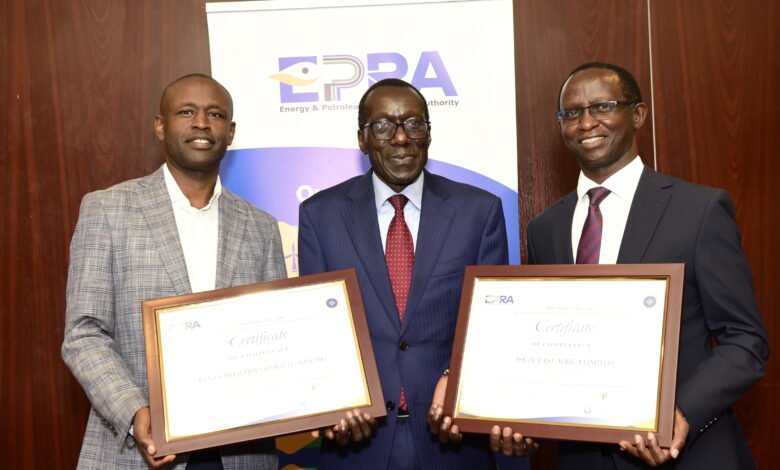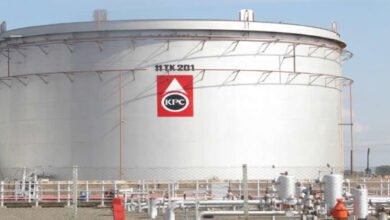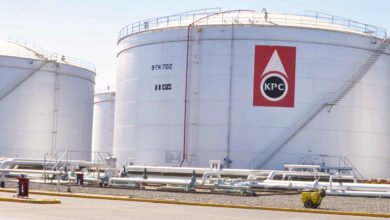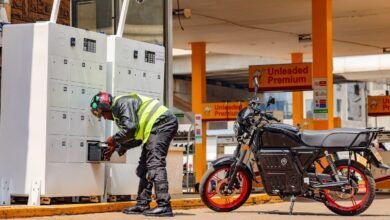
Isuzu East Africa Limited (Isuzu) and Kenya Breweries Limited (KBL) have set a new benchmark in sustainable industrial practices, earning recognition from the Energy and Petroleum Regulatory Authority (EPRA) for their outstanding compliance with the Energy (Energy Management) Regulations, 2025.
The two companies, the first to meet these stringent regulations gazetted in February 2025, have collectively achieved annual energy savings of Ksh.26 million.
Isuzu East Africa surpassed its energy audit projections by saving 128,818 kWh, translating to Ksh.5.6 million in annual cost reductions.
KBL on the other hand, the Kisumu Plant to be specific, achieved savings of 657,584 kWh in electrical energy and 5,497 GJ in thermal energy, amounting to Ksh.20.6 million annually.
“We are proud of these two companies for demonstrating commitment towards sustainable industrial practices. The accomplishments are a step in the right direction and will translate to reduced costs of doing business and lower emissions,” said EPRA Director General, Daniel Kiptoo Bargoria.
This is not the first time Isuzu and KBL have been recognized for their energy efficiency efforts.
In April 2024, EPRA issued Energy Management Compliance Certificates to Kenafric Industries Limited and Kenafric Manufacturing Limited, signaling a growing trend among Kenyan manufacturers to embrace energy efficiency.
While historical records specific to Isuzu and KBL receiving similar EPRA recognition prior to 2025 are limited, their 2025 achievement showcases what they have put in place to comply with energy efficiency measures, setting an example to the rest of other firms which EPRA encouraged to follow suit.
This recognition builds on President William Ruto’s push for energy efficiency, driven by the Energy Act 2019, which mandates EPRA to spearhead energy conservation initiatives across sectors.
The success of Isuzu and KBL stems from rigorous adherence to the Energy (Energy Management) Regulations, 2025. Key to their achievements were:
- Comprehensive Energy Audits: Both companies conducted thorough audits to identify energy-saving opportunities.
- Energy Management Plans: Structured implementation plans were developed to optimize energy use.
- Dedicated Energy Managers and Committees: Qualified energy managers, supported by in-house committees, oversaw the adoption of energy-efficient practices.
- Robust Record-Keeping: Detailed records of energy consumption and production ensured transparency and accountability.
These measures align with the regulations’ requirement for facilities consuming over 180,000 kWh of thermal and electrical energy annually to conduct energy audits every four years and implement sustained energy management programs.
The Energy (Energy Management) Regulations, 2025, are a cornerstone of Kenya’s strategy to enhance energy efficiency across commercial, industrial, and institutional sectors.
By mandating regular audits and the appointment of energy managers, the regulations aim to minimize energy losses, reduce operational costs, and lower carbon emissions.
EPRA is looking forward to a sustainable economic growth even as it enforces these regulations, which replaced the 2012 version.






Kumbaba su kaçak tespiti Zeytinburnu’nda su kaçağı tespiti için çok iyi bir ekip. Sorunumuzu hemen çözdüler. http://ruffeodrive.com/?p=34462
At this time it seems like Expression Entine is
the top blogging platform available right now. (from what I’ve read)
Is that what you’re using on your blog? https://Glassi-India.Mystrikingly.com/